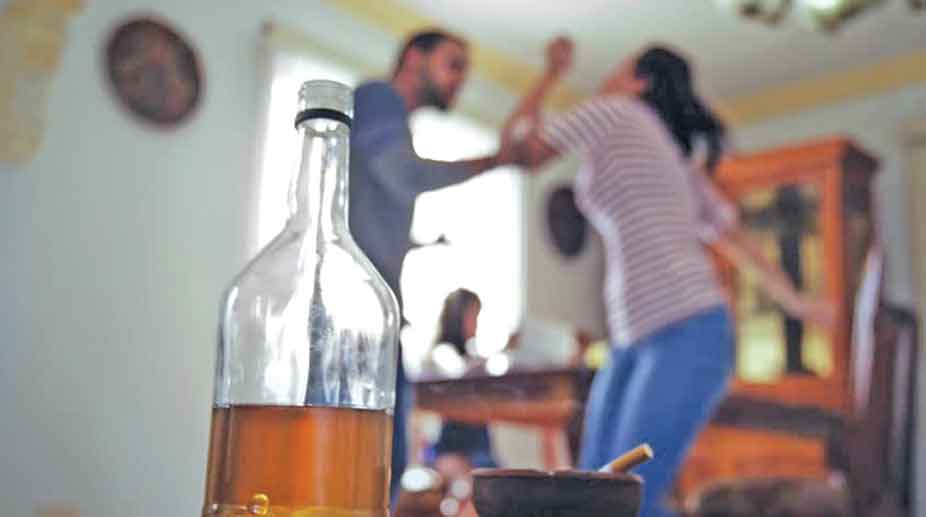While widespread concern has been expressed regarding the increasing trends of sexual crimes and assaults, not enough attention has been given to the significant role of alcohol and drugs in the escalation of sexual violence. Several significant studies in various countries have clearly pointed out that nearly 50 per cent of sexual assault cases involved the use of alcohol or drugs or both.
According to a widely cited paper on ‘alcohol and sexual assaults’ by Antonia Abbey, Tina Zawacki and others of the National Institute of Alcohol Abuse and Alcoholism (USA), “at least one half of all violent crimes involve alcohol consumption by the perpetrator, the victim or both. Sexual violence fits this pattern. Thus across disparate population studies, researchers consistently have found that approximately one half of all sexual assaults are committed by men who have been drinking alcohol. Depending on the sample studied and the measure used, the estimates for alcohol use among perpetrators have ranged from 34 to 74 percent. Similarly, approximately one-third of all sexual assault victims report that they were drinking alcohol at the time of assault with estimates ranging from 30 to 39 per cent.”
However, these researchers also point out that while a woman’s al
cohol consumption may place her at increased risk of sexual assault, she is in no way responsible for the assault. The researchers rightly say that the perpetrators remain legally and morally responsible for their behavior.
Moreover, it also needs to be pointed out that while the data about alcohol consumption by perpetrators is relevant to almost all situations, the data about alcohol consumption by victims is not relevant to those social contexts such as several parts of India where alcohol consumption by woman is very low. In such cases the main issue is the alcohol consumption of the assaulter only. In many of the most serious cases of sexual assault reported in India in recent times, alcohol consumption by the assaulter has been established.
The study by Abbey and Zawacki also points out that perpetrators embrace stereotypes about women who drink being sexually available and appropriate targets. Drinking is used by them as an excuse for socially unacceptable behavior. The researchers say that alcohol’s cognitive impairments enhance misperception of a woman’s friendly cues as sexual and facilitate an aggressive response if the man feels he has been ‘led on’.
These researchers say that alcohol’s cognitive impairments reduce the victim’s ability to evaluate risk. Alcohol’s motor impairments reduce her ability to resist.
The researchers say that when a man is intoxicated he can more easily focus on his immediate sexual gratification, sense of entitlement and anger, rather than on his internalised sense of appropriate behavior, future regret, the victim’s suffering and the possibility that he will be punished for his actions.
Another tragic fact to which these researchers draw attention is that in cases of sexual assaults involving alcohol consumption, the victim’s injuries are likely to be more serious.
Another study titled “Alcohol consumption and woman’s vulnerability to sexual victimization – can reducing woman’s drinking prevent rape” by Maria Testa and Jennifer A Livingston has stated, “a review of the literature on woman’s substance use and sexual victimisation points to woman’s heavy episodic drinking as a risk factor, particularly amongst college samples. At least half of sexual victimisation incidents involve alcohol use and the majority of rapes of college women occur when the victim is too intoxicated to resist (incapacitated rape). Despite the importance of woman’s heavy episodic drinking as being a risk factor, existing rape prevention programs have rarely addressed woman’s alcohol use and have shown little success in reducing rates of sexual victimization.”
Finally, these researchers suggest that given the strength of the association between heavy episodic drinking and sexual victimisation any prevention programme targeting drinking may also prove a more efficacious way of reducing the vulnerability of women to sexual assaults.
Remedial aspects these may differ from one social-cultural context to another. Nevertheless, two broad aspects can be discussed here:
- i) Keeping in view the widely recognized and highly adverse health and social impacts of alcohol and drug consumption, there is a clear and strong need for stepping up efforts to reduce overall consumption of alcohol and drugs in society. According to the WHO, 33 lakh net deaths are caused in a year by alcohol alone while 200 diseases and injuries are related to alcohol consumption. There are also specific problems of alcohol related to women. The overall reduction in alcohol and drug use, a reduction which is anyway needed by society for various reasons, will also help to reduce the vulnerability of women in terms of sexual exploitation.
- ii) Secondly, some more steps can also be taken for the protection of women from alcohol related sexual crimes as various high-risk situations have been identified by different research studies. Clear instructions should be used to increase the safety of women in these high-risk situations and to fix responsibility.











